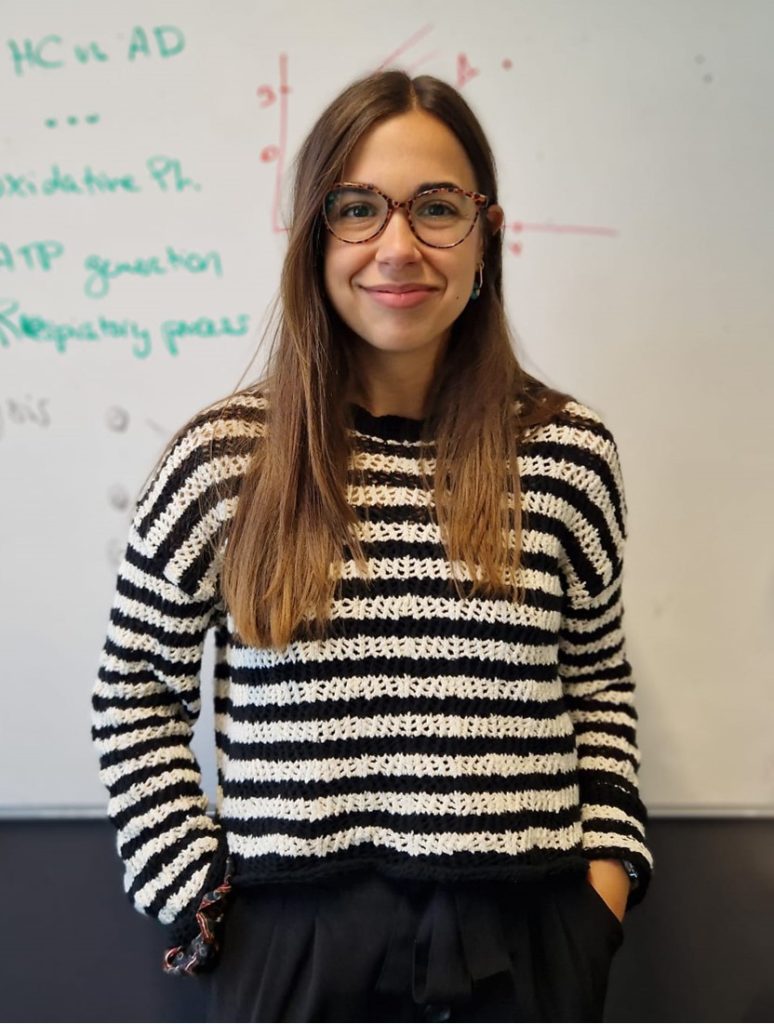Menu

Patient heterogeneity, or the variation in patient characteristics and responses to treatment, has long been a difficulty in effectively managing complex diseases like cirrhosis. Traditional methods often fall short, as they tend to overlook crucial factors that contribute to these variations. ClustALL was developed to overcome these challenges by simultaneously addressing diverse clinical data issues such as mixed data types, missing values, and collinearity. Applied to an European cohort of patients with acutely decompensated cirrhosis, ClustALL has demonstrated its capability to identify patient subgroups that could significantly improve clinical trial design and treatment strategies.

Picture: © David Gomez-Cabrero.
Head of the Translational Bioinformatics Unit at Navarrabiomed, Spain, and senior author in the paper David Gomez-Cabrero said: “My team has participated in numerous clinical translational research projects, and one consistent message has emerged: patient heterogeneity is significant and has meaningful implications, particularly in the context of acutely decompensated cirrhosis. The next step was to determine if we could accurately characterize this heterogeneity and if we had the necessary tools to do so.”
Researchers employed ClustALL to analyze data from 766 patients with acutely decompensated cirrhosis non-electively admitted to hospital from the PREDICT study. Remarkably, it identified five distinct patient subgroups based solely on admission data. These subgroups were characterized by key biomarkers of liver function and the number of organ system failures, with most also considering precipitating events.
A significant finding from the study was that ClustALL’s stratifications improved the understanding of patient outcomes over time. Patients were categorized into three main clusters, each showing different clinical features and prognostic values. This clustering approach was validated with an independent cohort of 580 patients from the ACLARA study carried out in Latin America, confirming its robustness and reliability.
Importantly, the study revealed that certain features, such as serum bilirubin levels and international normalized ratio (INR), are key in predicting patient outcomes and understanding patient heterogeneity at hospital admission. In contrast, other factors like age, sex, body mass index, and lifestyle were found to be less significant in this context.
Predoctoral researcher at Navarrabiomed, and first author in the paper Sara Palomino-Echeverria explained: “Imagine you have a large box of mixed buttons in various colors, sizes, and shapes. You want to sort these buttons into groups based on their similarities, but no one has told you how many groups there should be or which features to focus on. You have to figure it out on your own just by examining the buttons. Unsupervised clustering is quite similar.”
The authors used machine learning algorithms to analyze and cluster unlabeled datasets. “This methododology allowed us to group similar items together without prior knowledge of the groups. In this sense, patient stratification involves clustering patients based on their characteristics so that each group can receive tailored treatments or interventions”, she noted.
“We built our stratification model using more than 70 clinical features. Once optimized, we applied statistical models to identify the minimal number of predictive features necessary to form the resulting patient groups”, she clarified.
A step forward towards personalized medicine
By identifying more homogeneous patient populations, ClustALL can potentially revolutionize how clinical trials are designed, ensuring more patients will be assigned to the more successful treatment. This not only will improve patient care, but also increase the accuracy and relevance of research findings.
“The stratification we set up differs from the scores developed and routinely used in patients with cirrhosis (e.g., MELD, MELD-Na, Child-Pugh, CLIF-C AD) both in terms of design and use. Indeed, all these scores were built using a follow-up endpoint (usually death) in patients receiving therapies. These scores are helpful to identify patients at high risk of poor outcomes, but they do not fully capture the heterogeneity of the patients at admission for several reasons: (a) some features explaining patients heterogeneity might not have an independent prognostic value, either because the prognostic information they carry is contained in other variables, or because therapies administered to patients during their follow-up blunt their impact; and (b) a similar survival rate does not imply similar pathophysiological mechanisms”, said Pierre-Emmanuel Rautou, Professor at UMR 1149 Inserm – Université Paris-Cité, consultant at Hôpital Beaujon AP-HP, France, and Coordinator of the DECISION project.
Authors of the study thus emphasized that ClustALL is not intended to replace current prognostic scores, but to complement them by providing a deeper understanding of patient differences. An online calculator based on ClustALL’s findings is available, further aiding researchers and clinicians in making more informed decisions.
While the results of this study are promising, the authors acknowledged certain limitations and areas for future development. For instance, integrating biological data from multiomic analyses could provide a more comprehensive understanding of patient conditions. Additionally, expanding ClustALL’s framework to include customizable user functions and additional methods could enhance its applicability across various clinical settings.
ClustALL represents a significant advancement in patient stratification, offering a robust and versatile tool for improving healthcare management and targeted interventions. As research continues, ClustALL holds the potential to transform the way we understand and treat complex diseases, ultimately leading to better patient outcomes.
“By identifying homogenous populations of patients with acutely decompensated cirrhosis at admission to the hospital, this study could guide future clinical trial design”, added Rautou.
Other authors on the study are Estefania Huergo, Asier Ortega-Legarreta, Eva M Uson Raposo, Ferran Aguilar, Carlos de la Peña-Ramirez, Cristina López-Vicario, Carlo Alessandria, Wim Laleman, Alberto Queiroz Farias, Richard Moreau, Javier Fernandez, Vicente Arroyo, Paolo Caraceni, Vincenzo Lagani, Cristina Sánchez-Garrido, Joan Clària, Jesper Tegner, Jonel Trebicka, Narsis A Kiani, and Nuria Planell.

This study received funding from the European Union’s Horizon 2020 research and innovation programme under grant agreement no. 847949.
Palomino-Echeverria S, Huergo E, Ortega-Legarreta A, Uson Raposo EM, Aguilar F, Peña-Ramirez C, López-Vicario C, Alessandria C, Laleman W, Queiroz Farias A, Moreau R, Fernandez J, Arroyo V, Caraceni P, Lagani V, Sánchez-Garrido C, Clària J, Tegner J, Trebicka J, Kiani NA, Planell N, Rautou PE, Gomez-Cabrero D. A robust clustering strategy for stratification unveils unique patient subgroups in acutely decompensated cirrhosis. J Transl Med 2024;22(1):599. DOI: 10.1186/s12967-024-05386-2
European Foundation for the Study of
Chronic Liver Failure
Avinguda Diagonal 477, 11th floor
08036 Barcelona, Spain
Tel: +34 93 227 14 00
Email: Send us an email
© 2025 European Foundation for the Study of Chronic Liver Failure

| Cookie | Duration | Description |
|---|---|---|
| cookielawinfo-checkbox-analytics | 11 months | This cookie is set by GDPR Cookie Consent plugin. The cookie is used to store the user consent for the cookies in the category "Analytics". |
| cookielawinfo-checkbox-functional | 11 months | The cookie is set by GDPR cookie consent to record the user consent for the cookies in the category "Functional". |
| cookielawinfo-checkbox-necessary | 11 months | This cookie is set by GDPR Cookie Consent plugin. The cookies is used to store the user consent for the cookies in the category "Necessary". |
| cookielawinfo-checkbox-others | 11 months | This cookie is set by GDPR Cookie Consent plugin. The cookie is used to store the user consent for the cookies in the category "Other. |
| cookielawinfo-checkbox-performance | 11 months | This cookie is set by GDPR Cookie Consent plugin. The cookie is used to store the user consent for the cookies in the category "Performance". |
| viewed_cookie_policy | 11 months | The cookie is set by the GDPR Cookie Consent plugin and is used to store whether or not user has consented to the use of cookies. It does not store any personal data. |